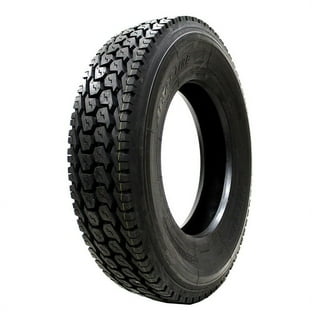Don't Miss Out on Mopar Tire Service Specials: Budget Friendly Upkeep Plans
Don't Miss Out on Mopar Tire Service Specials: Budget Friendly Upkeep Plans
Blog Article
Tire Service: The Effect of Weather Problems
When it pertains to making certain ideal efficiency and safety on the roadway, understanding the effect of weather problems on tire solution is essential. From scorching warm to icy roadways, each weather aspect can dramatically influence tire performance and overall driving experience. By diving right into the effects of varying climate condition on tires, motorists can obtain valuable insights that may boost their automobile's performance and long life. In this discussion, we will explore the elaborate connection in between climate condition and tire solution, clarifying the importance of weather-specific tire maintenance methods and factors to consider.
Heat and Tire Efficiency
When exposed to heats, tires experience changes in efficiency that can substantially affect car security and handling. The heat produced from extended driving or hot weather problems creates the tire rubber to soften, leading to decreased tread life and increased wear. As the rubber comes to be softer, the tire's grasp on the road reduces, affecting braking distances and overall traction. In severe instances, extreme heat can also cause tire blowouts, posing an extreme security risk to the lorry and its occupants.
In addition, high temperatures can speed up the procedure of tire aging, creating the rubber to deteriorate much more swiftly. To minimize the effects of heat on tire performance, motorists must regularly check their tire pressure, turn tires to make sure also put on, and evaluate for any kind of indicators of damage.
Winter Effects
Cold weather condition conditions can have a considerable effect on tire efficiency and security. As temperature levels decline, tire rubber can solidify, bring about reduced grip on icy or snow-covered roadways. In winter, tires might likewise lose air pressure much more rapidly, which can affect dealing with and fuel efficiency. In addition, cool temperature levels can create tire sidewalls to tense, boosting the danger of damage from pockets or various other road risks.
To reduce the effects of winter on tires, it is important to routinely check tire stress and inflate them to the producer's recommended degrees. Using winter or all-season tires made for chilly weather problems can likewise boost grip and grip on icy or snowy roadways - tire shop morris. Appropriate tire maintenance, consisting of regular examinations for wear and damage, comes to be a lot more crucial throughout colder months to make certain optimal efficiency and safety
Rainy Issues Impact
Throughout stormy problems, tire performance and security can be substantially influenced by the damp road surface areas and minimized visibility. The walk pattern of tires plays a crucial role in maintaining traction on wet roadways. Tires with damaged treads are much more prone to hydroplaning, where a layer of water accumulates between the tire and the road surface area, bring about loss of grip. To battle this, chauffeurs should routinely inspect their tires for adequate step deepness and consider buying tires specifically created for damp conditions.

Snow and Tire Safety
Snow-covered roads present distinct obstacles for motorists, stressing the significance of correct tire choice and maintenance. When driving in snowy conditions, having the appropriate tires can make a considerable difference in security and performance. Winter months tires are created with special rubber substances and step patterns to provide much better grip on snow and ice compared to all-season tires. The deeper footsteps and sipes of winter months tires assist grasp the road better, reducing the risk of moving and sliding.
In enhancement to utilizing winter season tires, it is important to guarantee they are properly inflated. Cold weather can trigger tire stress to drop, affecting traction and handling (morris tire and alignment). On a regular basis inspecting and keeping the proper tire pressure is necessary for ideal efficiency in snowy problems

Weather-Related Tire Upkeep
Weather-related tire upkeep encompasses a range of techniques aimed at guaranteeing optimal tire feature and durability in different climate situations. One key facet of weather-related tire maintenance is tire pressure guideline. Examining tire tread consistently and changing tires when tread wear gets to a certain deepness is important for maintaining grip and stability in negative article weather.
Verdict
In final thought, climate conditions have a considerable influence on tire performance and safety (tires morris il). From warmth affecting tire pressure and use to cool weather decreasing grip, it is crucial to consider the weather condition when preserving and making use of tires.
In this conversation, we will certainly explore the elaborate connection in between climate problems and tire solution, losing light on the relevance of weather-specific tire upkeep practices and considerations.

Report this page